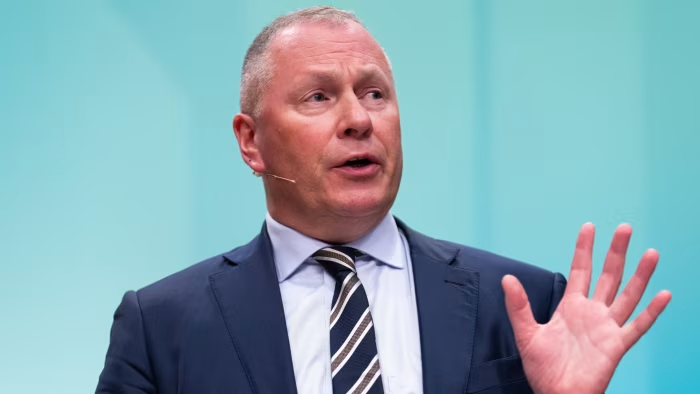Stay informed with free updates
Simply sign up to the Artificial intelligence myFT Digest — delivered directly to your inbox.
Nicolai Tangen, the head of the world’s largest sovereign wealth fund, warned that the accelerating deployment of artificial intelligence risked deepening social and geopolitical inequalities across the globe.
The chief executive of Norway’s $2tn national fund said that as access to advanced models became increasingly expensive, AI had the potential to widen the gap between rich and poor individuals as well as nations.
“You need prior education, you need electricity, you need digital infrastructure . . . There is a potential for this to amplify differences in the world,” Tangen said from his New York office overlooking Bryant Park.
“There is a potential for splitting societies, and there is a real potential for splitting the world into the countries which can afford it and the countries which cannot afford it.”
The 59-year-old executive said that different approaches to regulating AI could also widen growth rates between Europe and the US.
“Here in this country (the US), they’ve got a lot of AI and not so much regulation. In Europe, there is not so much AI but a lot of regulation,” he said, arguing that the EU’s tendency to over-regulate could hold back economic growth.
The former hedge-fund investor said governments and large companies would soon have to grapple with the consequences of uneven adoption, from labour-market disruption to questions of access and fairness.
While AI promises significant productivity gains — he estimates as much as 20 per cent within his own organisation — Tangen said policymakers risked falling behind the speed of technological change.
“We live in a time where it’s totally futile to try to predict anything,” he said. “The focus now has to be on agility, culture and preparing societies for what’s coming.”
Tangen remains an AI optimist. He said that while the extraordinary boom in AI investment carried many of the hallmarks of a bubble, in the long term that might ultimately prove “not too bad” for the global economy.
He said that AI was a “pretty hot space” at the moment, driven by huge enthusiasm and rapid capital inflows, yet also represented a “massive societal transformation” that made traditional valuations hard to assess.
Even if parts of the sector were overinflated, Tangen said, the surge of capital into AI would still fund technologies that improve productivity.
“If it is a bubble, it may not be such a bad bubble,” he said, pointing to potential long-term gains from advances in automation, data processing and model development.
The challenge for investors, he added, was distinguishing genuine breakthroughs from hype in a market dominated by a handful of powerful platform companies.
Tangen said AI was already reshaping the way the Norwegian fund operated — from investment decisions to internal communications.
“Five years ago, the technology department was kind of stuck in a cupboard. Now they are heroes,” he said. “In this organisation, we now have 460 out of 700 people who actually code.”
Driving such change internally has required forcing employees to take mandatory classes.
“Do people like mandatory? They hate mandatory. But if it’s not mandatory, the people who need it the most, they don’t do it,” he said.
